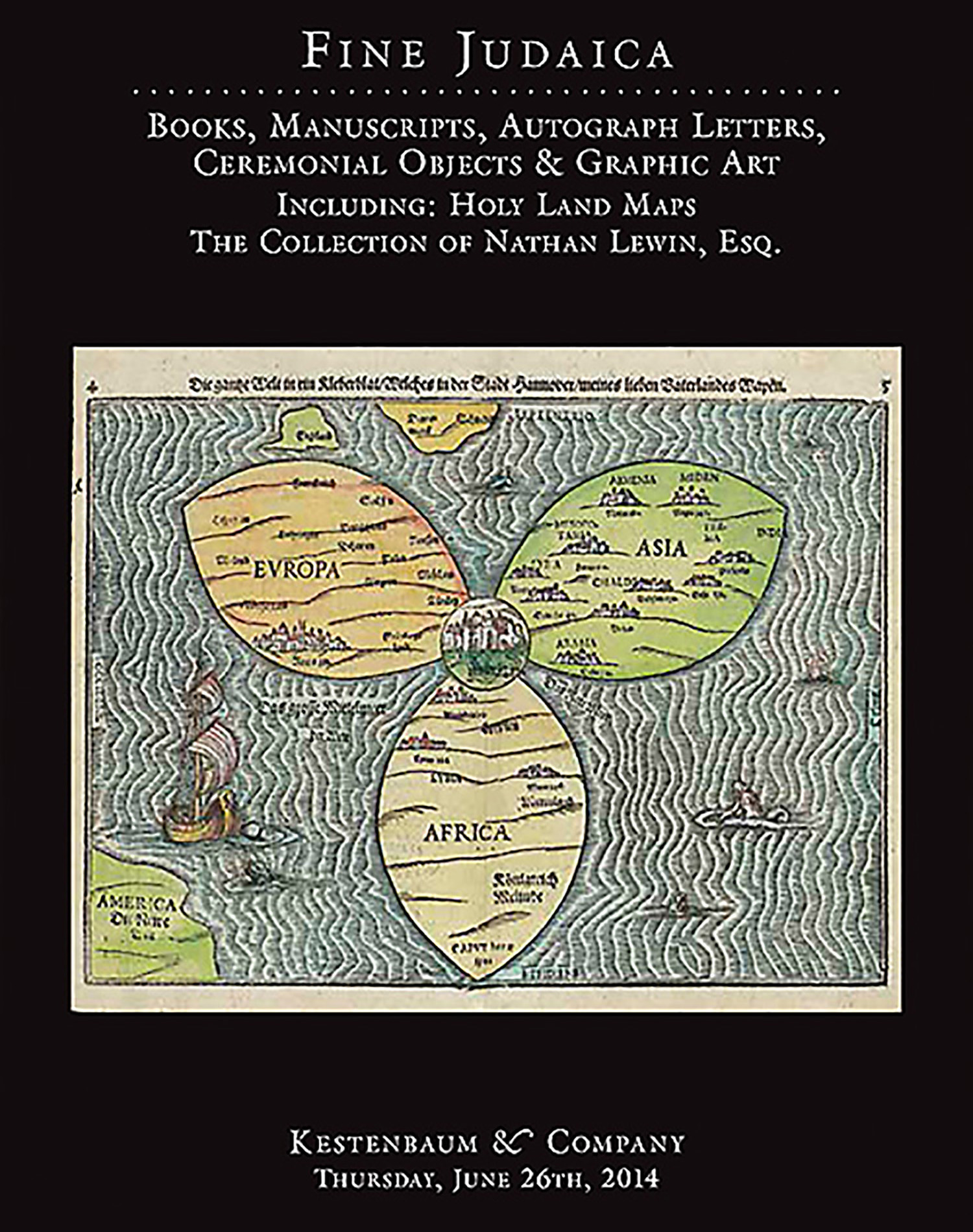Sepher Ne’imoth Beyemin Netzach [Piyutim for Sabbath Zachor and Purim].

AUCTION 62 |
Thursday, June 26th,
2014 at 1:00
Fine Judaica: Books, Manuscripts, Autograph Letters, Graphic and Ceremonial Art
Lot 65
(CRIMEA).
Sepher Ne’imoth Beyemin Netzach [Piyutim for Sabbath Zachor and Purim].
Piotrkow: M. Tzederbaum 1905
Est: $3,000 - $5,000
PRICE REALIZED $1,500
<<One of very few Hebrew books printed in the Judeo-Tartar language.>>
The translator, Nissim Halevi Tzachtzir (or, Tchatchir) and known by his Hebrew acronym “Netzach,” was the son-in-law of one of the great Rabbinic scholars of the day, Haim Hezekiah Medini, who edited the monumental Talmudic encyclopedia, Sdei Chemed. Chief Sephardic Rabbi of Hebron, Medini earlier served for many years as Rabbi of Karasubazar (now Belogorsk) in the Crimea. From 1867 to 1900, Medini was recognized as Chief Rabbi of Crimean Jewry and was most beloved by the Krymchaks.
The Krymchaks are an indigenous Rabbinite Jewish community of the Crimean Peninsula. The term Krymchak (“inhabitant of Crimea”) was first introduced by the Russians following their annexation of Crimea in 1783. The name was chosen to distinguish them from Karaites as well as from the Ashkenazic Jews of Eastern Europe. The 20th-century twin blows of Nazi genocide coupled by Soviet cultural oppression, alongside emigration to Israel and the United States, have left just a precious few local Krymchaks clinging to their uniquely Crimean-Jewish identity.
The exotic Judeo-Tatar dialect preserved here in one of the very few books printed in this form bears a remarkable resemblance to Turkish - which stands to reason, as the Crimea is right across the Black Sea from Turkey, and was formerly Ottoman territory before its loss to Russian conquest. Today the language, certainly in its Hebrew-form, is essentially lost of native speakers.
The most unusual Kethubah for the seventh day of Passover appended here was composed by R. David Pardo (1718–90), the celebrated Italian rabbinic author and poet, later in Sarajevo, author of Maskil LeDavid (Venice, 1761), a super-commentary to Rashi’s biblical commentary, as well as other halachic works.
For the Jews of the Crimea, see EJ, Vol. V, cols.1103-08.
